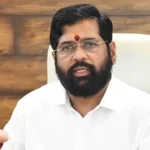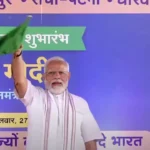On Tuesday, Prime Minister Narendra Modi addressed a gathering in Jammu after inaugurating tasks worth around Rs 32,000 crore. In his speech, Modi highlighted the importance of doing away with Article 370 as an impediment to the improvement of Jammu and Kashmir. He appealed to citizens to elect the Bharatiya Janata Party (BJP) to 370 parliamentary seats in the upcoming country elections and help the National Democratic Alliance past four hundred participants.
On the occasion, Modi passed over task playing cards to newly appointed civil servants. He spoke approximately the significance of casting off Article 370, which gave special status to East Jammu and Kashmir. He counseled the youth inside the location to stay far away from imperialist politics. Modi had in advance visited Jammu and Kashmir in April.
On August 5, 2019, the BJP government removed Article 370. Since then, Modi has given locals hope that in the ensuing years, the federal government would grant their unfulfilled dreams from the previous seven long years. The BJP management, he said, has reached out to the people through its “Vikas Bharat Sankalp Yatra.” Modi promised that no one would be excluded and that the number might rise noticeably very soon.
Also Read: Why Do Residents of Mumbai Act Differently In Local And Metro Trains?
The National Conference, the People’s Democratic Party (PDP), and the Congress were among the past political parties that Modi attacked for continuing dynasty politics rather than putting the needs of the populace first. He expressed his delight at the end of dynastic rule in Jammu and Kashmir. At the same spot, Modi remembered his 2013 Lalkar Rally, during which he questioned why Jammu & Kashmir couldn’t have world-class universities. Prestigious universities like the Indian Institute of Technology, the Indian Institute of Management, and two All-India Institutes of Medical Science are now located in the area.
Modi condemned the Congress government for delaying the implementation of One Rank One Pension (OROP) for military personnel. As a result of the BJP government’s actions, retired servicemen in Jammu & Kashmir received over INR 1,600 crores in benefits. Modi also appealed to women to become part of creating one million female entrepreneurs (“Lakhpati Didis”).
Modi praised the accomplishments of several Central Government initiatives, especially those headed by women, during his interactions with the locals. He emphasized the beneficial effects these initiatives have on rural women’s lives. Modi also talked about how tourism has increased, with two crore people visiting the country the year before. In the next five years, he said, India wants to be among the top three economies in the world and develop world-class infrastructure in Jammu and Kashmir.
Ultimately, Modi used a video conference to officially open the All India Institute of Medical Sciences (AIIMS) in Jammu. In ten years, Jammu & Kashmir had gone from having four medical colleges to twelve, and the number of MBBS seats had increased significantly. Prior to 2014, the region had 650 postgraduate medical seats available; these seats had been introduced. There are currently 35 nursing and paramedical colleges under development in the area, and the Center has constructed two more AIIMS in Jammu and Kashmir.
how has the revocation of Article 370 impacted the development of J&K?
The growth of Jammu and Kashmir has been significantly impacted by the repeal of Article 370. The people of the area can now enjoy all the rights guaranteed by the Indian Constitution as well as the advantages of central legislation that were before inaccessible to them, as the region has been fully included in the country’s mainstream. As a result, Jammu and Kashmir and Ladakh, two Union Territories, have seen socioeconomic improvement. The creation of a three-tiered grassroots democratic structure, which includes Panchayati Raj Institutions, has given the local populace more influence and aided in overall growth. In addition, new legislation amended domicile regulations, and the establishment of new governing bodies, such as District Development Councils, have resulted from the revocation.
what were the main arguments for and against the revocation of Article 370?
Reversing Article 370, which granted special status to the erstwhile state of Jammu and Kashmir, was a contentious topic with opposing views. The main arguments in favor of the revocation were that it would bring Jammu and Kashmir fully into the mainstream of the nation, granting its people access to all the rights enshrined in the Indian Constitution and the benefits of central legislation that they had not yet experienced. Furthermore, the annulment was perceived as a means of instituting fresh legislation and administrative authorities, enabling the community via decentralized democracy, and promoting the economic progress of the region. Revocation proponents argued that the action would promote peace and development in the region.
Also Read: JP Morgan’s Warning Signs and Promising Investment Sectors in 2024 and Past Market Declines
On the other hand, the main opposition to the revocation stemmed from the belief that it would erode the political autonomy of Jammu and Kashmir, which had already been severely limited since the implementation of Article 370. Opponents of the revocation further said that the region’s unique identity and cultural legacy would be lost and that it would be seen as a violation of the trust of the people of Jammu and Kashmir. Some critics also raised concerns about the impact on the rights of marginalized groups and minorities, as well as the potential for increased violence and instability in the area.
With the support of various other political parties in India that frequently oppose the BJP as well as Hindu nationalist groups like the BJP, the Indian parliament overwhelmingly backed the repeal of Article 370. Divergent opinions existed among the leaders of the Indian National Congress, the country’s principal opposition party, over the abolition of Article 370. While some congressional leaders were unhappy with the government’s decision, others applauded it. International observers, legal experts, and human rights campaigners unanimously denounced the action.
The revocation of Article 370 was a divisive topic with proponents and opponents. Opponents claimed it would undermine the region’s political autonomy and cause it to lose its distinct identity and cultural legacy, while supporters claimed it would spur socioeconomic progress and result in Jammu and Kashmir’s full integration into the country.











[…] PM Modi Addresses Development in Jammu & Kashmir and points out Article 370 […]